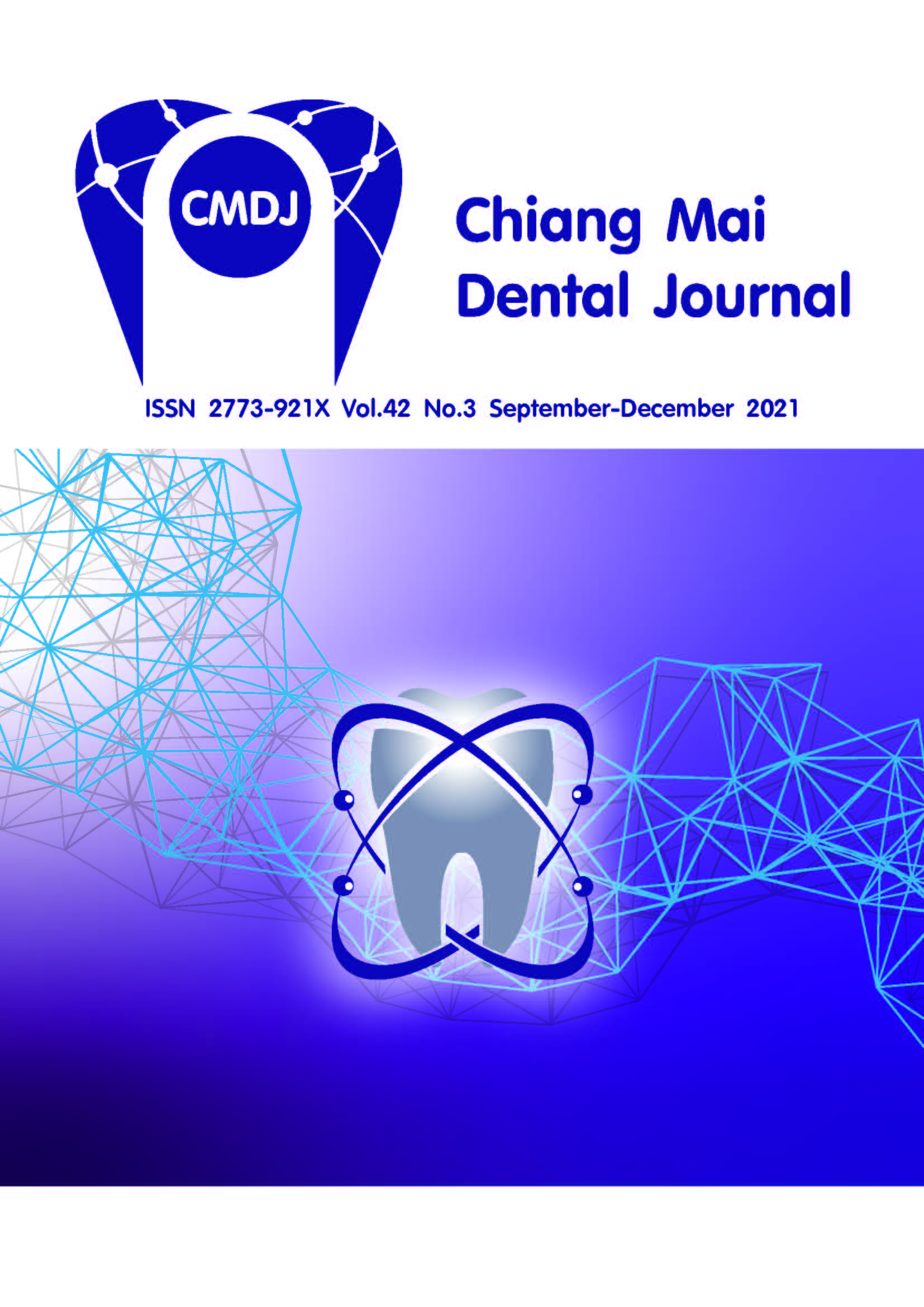Oral cancer patients’ perspectives to quality of life: a qualitative study in the context of Northern Thailand medical and cultural systems
Main Article Content
Abstract
Abstract
Objective: To investigate oral cancer patients’ perspective on quality of life; to explore how do medical systems works in the context of cultural systems in Northern Thailand.
Materials and Methods: A phenomenological study was conducted to make an understanding on oral cancer patients experiences and their perceptions on quality of life. Twelve oral cancer patients were recruited for in-depth, semi-structured interviews. The diverse experiences from patients who have been diagnosed with oral cancer from 2 months to 11 years were collected and the narratives were extracted, categorized, and analyzed into significance themes by using content analysis.
Results: Four themes emerged from the interviews including: (1) ability to cope with cancer under the supportive cultural healing, (2) family support and social network, (3) accessibility and availability of medical care, and (4) acceptance of new identity. Patients’ health believes and values were attached firmly to cultural explanation of disease and expressed through health seeking behaviors. Biomedicine together with cultural medicine both played their roles for oral cancer healing. Culture defined meaning of oral cancer and identify healing, thus, patients used pluralistic medicine to cure diseases and heal their illness.
Conclusions: The stigma of cancer is the unprepared-suffering death causes by uncleared factors. Patients believed Karma and curses were causes of cancer. Oral cancer patients need both biomedicine and cultural medicine to heal their organs, emotion, mind, and soul. Supports from social network, government health policy, and socio-cultural constructs help patients to perceive a good quality of life.


